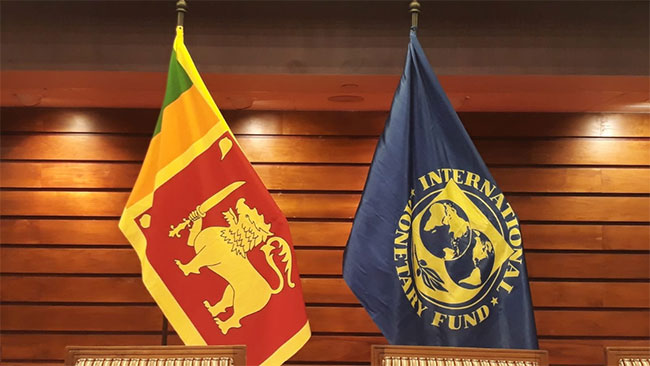Ready to revise Sri Lanka bailout after US tariffs: IMF
April 29, 2025 10:11 pm
The International Monetary Fund on Tuesday offered to revise the terms of a $2.9 billion bailout loan to cash-strapped Sri Lanka, should the United States reinstate punitive tariffs on exports.
The administration of US President Donald Trump this month imposed a 44 percent tariff on imports, including garments and rubber, from the South Asian island nation, which is struggling to recover from its economic meltdown in 2022.
The prohibitive tariffs have been suspended by Washington for 90 days, and Colombo is in talks to have them removed, but there has been no response yet from US authorities.
The IMF’s mission chief for Sri Lanka, Evan Papageorgiou, told reporters Tuesday that global trade policy uncertainties triggered by Trump’s tariffs posed a major risk for Sri Lanka.
“If these risks materialise, we will work with the authorities to assess the impact of those shocks, and we will support the country in formulating specific policy responses within the contours of the existing IMF programme,” Papageorgiou said.
His remarks came nearly three weeks after talks with officials in Colombo and a warning that the country’s recovery would be undermined if Washington revived the punishing tariffs.
The United States is Sri Lanka’s largest single market, accounting for almost a quarter of its $12 billion in merchandise exports.
The trade balance is heavily in favour of Colombo.
Sri Lanka secured a $2.9 billion, four-year loan from the IMF after running out of foreign exchange to finance even the most essential imports, such as food, fuel and medicines, in 2022.
Sri Lanka had reported its first full year of economic expansion since its unprecedented crisis in 2022 when the US tariff announcement was made.
The final quarter of 2024 saw the economy expand by 5.4 percent, bringing the full calendar year’s GDP growth to 5.0 percent, compared to a contraction of 2.3 percent in 2023.
Sri Lanka’s worst economic performance was in 2022 when GDP shrank by 7.3 percent.
Months of shortages in early 2022 led to street protests that eventually toppled then-president Gotabaya Rajapaksa.
His successor, Ranil Wickremesinghe, doubled taxes, cut subsidies, raised prices and went on to lose his re-election bid in September.
The IMF said the new administration, led by President Anura Kumara Dissanayake, was committed to reforms and raising revenue in line with the bailout.
Source: AFP
--Agencies












